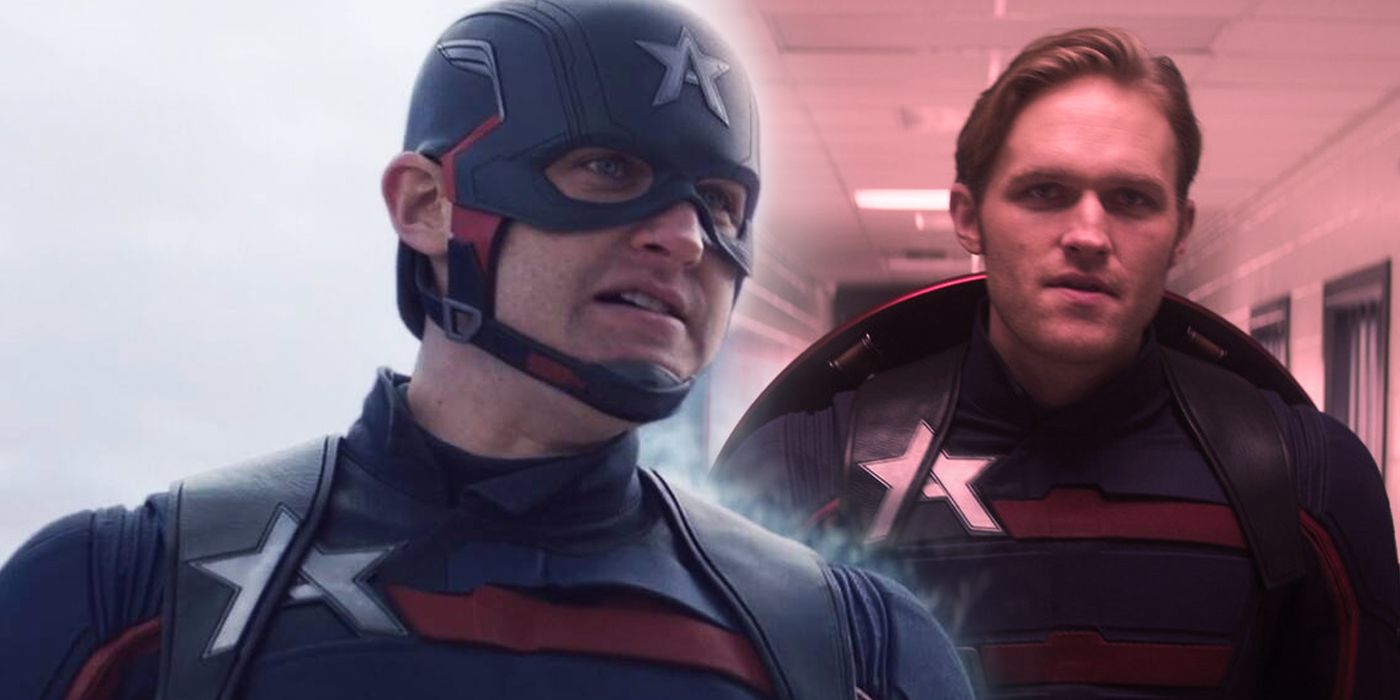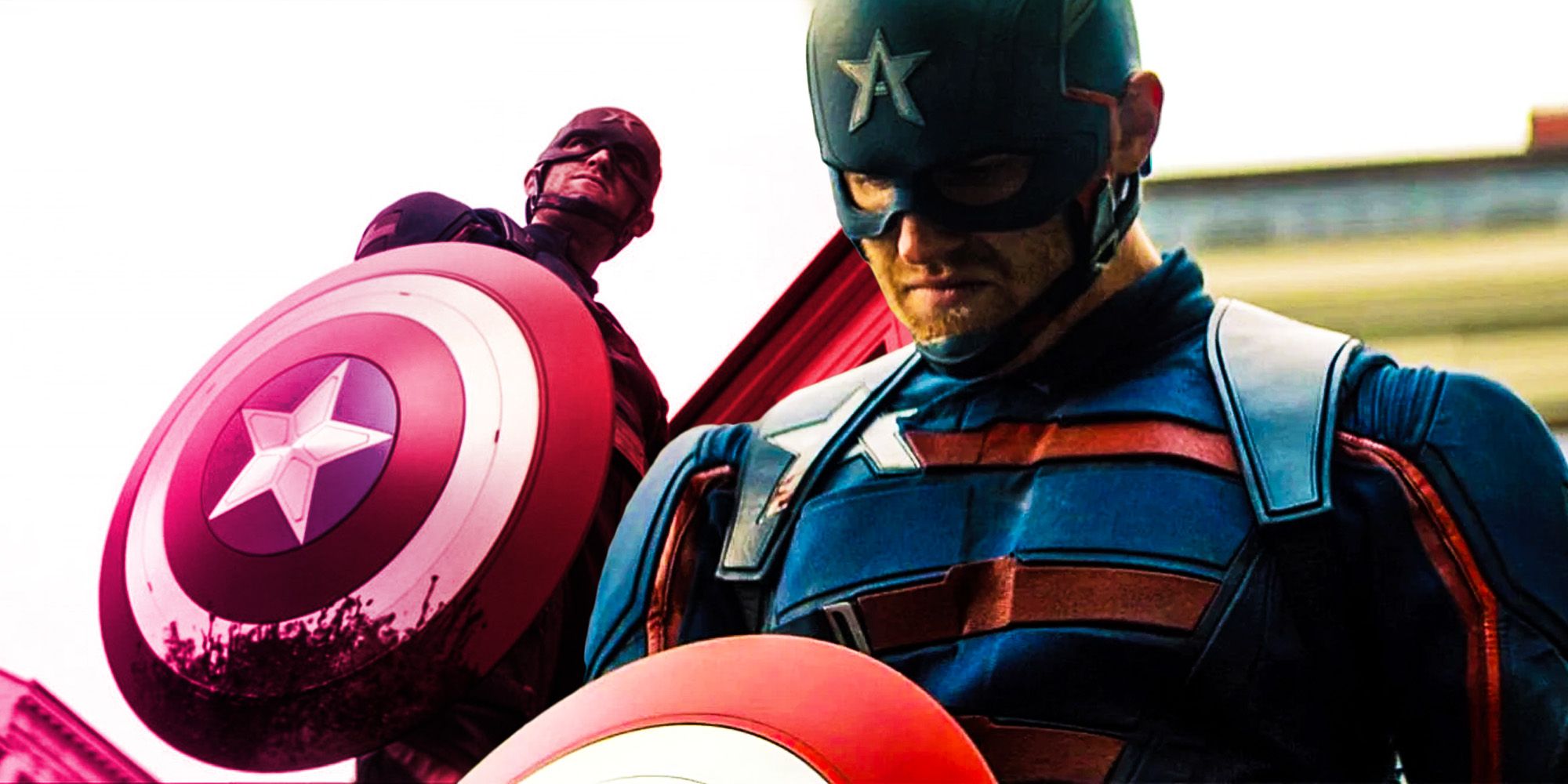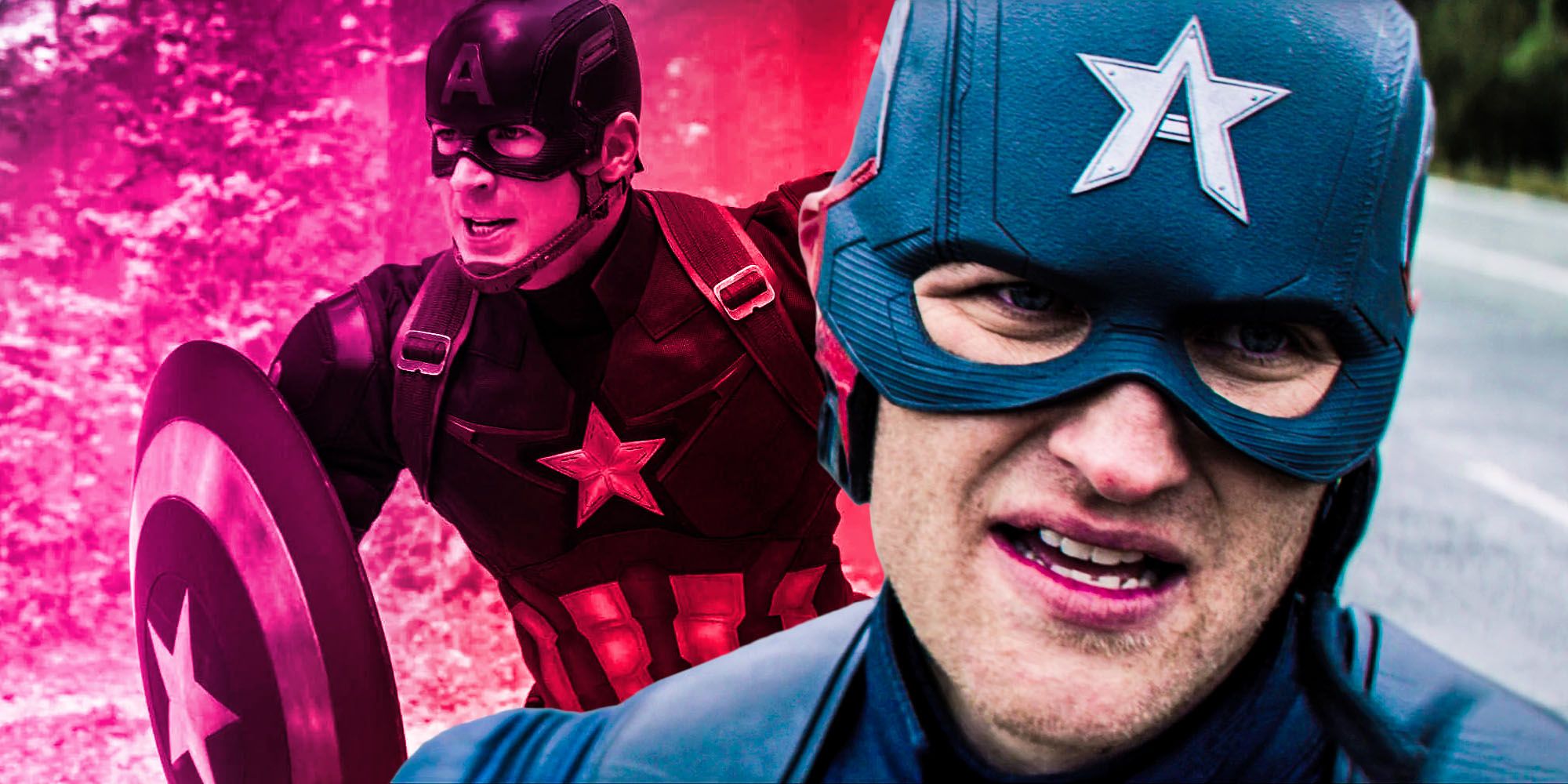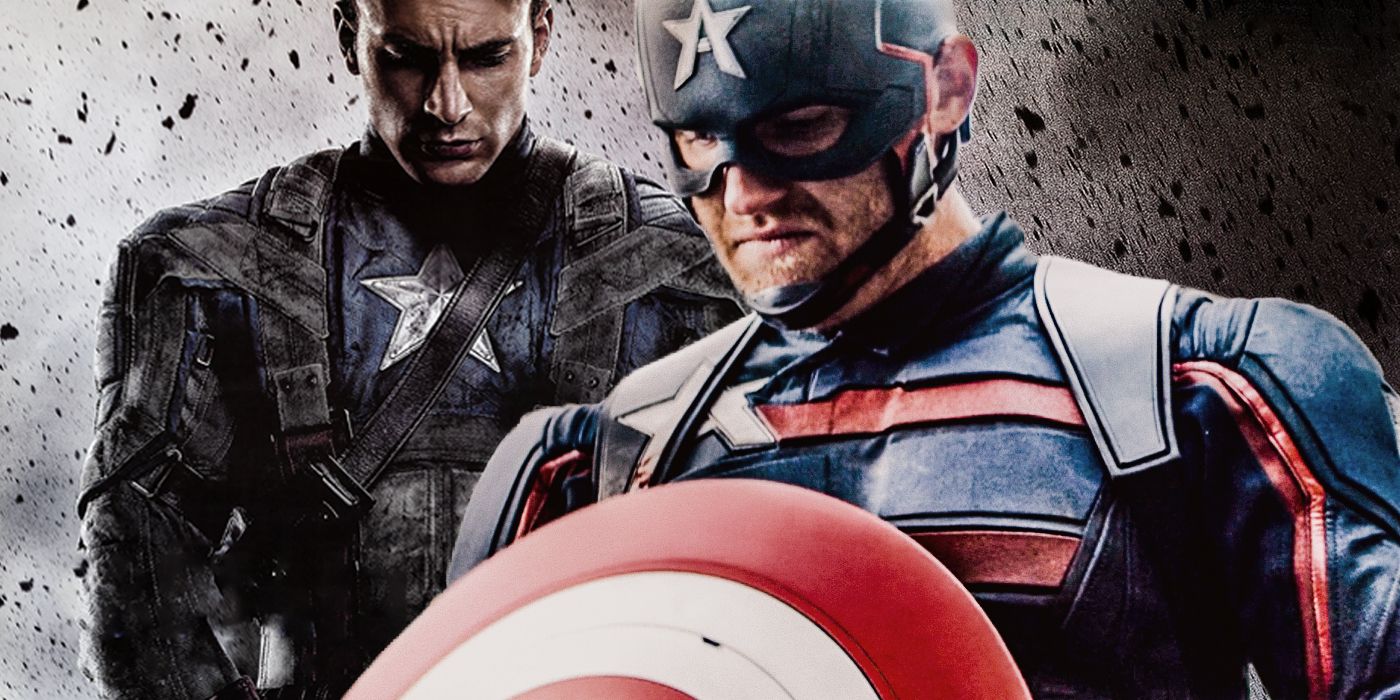WARNING: the following contains SPOILERS for The Falcon and the Winter Soldier episode 4, "The Whole World is Watching."
John Walker went too far at the end of The Falcon and the Winter Soldier episode 4, but despite his corruption, the new Captain America ultimately is not the show's true villain. The Disney+ Marvel series is arguably the MCU's most thought-provoking look at militarism and violence, refusing to demarcate the characters into purely "good" and "bad" roles. John Walker is easy to hate — but he's easy to sympathize with too, given his situation. Regardless if one admires or despises the character, the fact remains that John Walker was put in these circumstances by a governing body that did little, if anything, to prevent tragedy.
In a fateful, if not unexpected, move, John Walker took the Super Soldier Serum, which amplifies one's physical characteristics, and is implied to amplify one's defining character traits as well. Walker is largely a well-meaning soldier who wants to do the right thing, but he is also traumatized, competitive to a fault, and overly aggressive. Frustrated largely by his inability to live up to Steve Rogers' legacy, Walker has been increasingly desperate in his attempt to catch up with the Flag-Smashers (while trying not to be outdone by Sam and Bucky). Walker dosed himself, which amplified his positive as well as his negative attributes. Now that he's been pushed over the edge by Battlestar's death, who knows how far he'll go?
The Falcon and the Winter Soldier episode 4 ends with John Walker standing over Nico's remains, surrounded by horrified onlookers. Since his version of Captain America is clearly designed to be a propaganda tool, this particular turn of events will be devastating; Walker has no doubt just destroyed his military career with such a public display of brutality on foreign soil. The reality is that Walker just lost everything that matters to him, which will almost certainly take him down an even darker path. It's a tragedy that was not only completely preventable — it was obviously inevitable.
John Walker Became Captain America Under Toxic Circumstances
John Walker should never have been made Captain America — or at the very least, his version of the icon should never have been tasked with actual military assignments. Walker's new role as the face of the American military was undermined before it even began: Steve Rogers clearly gave the Captain America shield to Sam Wilson to take on that mantle, and the circumstances of it being publicly removed from the museum and bestowed on Walker (a white man with no experience with the Avengers) was disrespectful to both heroes. As an outsider, Walker was not privy to the circumstances by which Sam Wilson received, then returned, Captain America's shield. The military veteran surely had some idea — but given his general arrogance (and privilege), it's just as likely that Walker never stopped to think how people like Sam and Bucky would react.
Walker clearly wanted to work with Sam and Bucky in Falcon and the Winter Soldier, but the two (understandably) didn't trust him and rejected his offers to work together. From Walker's perspective, this must have been a blow to his confidence in his new role. Worse though, the situation set up a toxic dynamic whereby the freshly-appointed figurehead for American (militaristic) values had no support network to fall back on. Both Sam and Bucky have experience living the "hero" life that involves being a public figure, not to mention working under the pressure of extremely high stakes. John Walker doesn't understand what being Captain America really means in that sense — and by the end of episode 4, the pressure has clearly gotten the better of him.
Captain America Should Not Be A Soldier
Steve Rogers understood better than anybody that being Captain America is about more than carrying out missions or fighting for America. In the comics, Steve Rogers quit specifically because the Commission wanted him to be an employee of the government rather than an independent agent. He sees the inherent problem with this setup, arguing that in following military orders, he could be put in a position of compromising his morals. For Steve, personal accountability is a key aspect of being a hero. In Captain America: Civil War, he opposes signing the United Nation's Sokovia Accords, arguing, "If we sign this, we surrender our right to choose. What if this panel sends us somewhere we don't think we should go? What if there's somewhere we need to go and they don't let us? We may not be perfect but the safest hands are still our own."
John Walker, on the other hand, is a decorated soldier who has made a career out of following orders — even those he doesn't agree with. As his conversations with Battlestar revealed, Walker carried out duties in Afganistan that were morally suspect. All the qualities that make him such a reliable, dependable soldier are exactly why he went down such a corrupt path in The Falcon and the Winter Soldier. Walker is dedicated to doing whatever it takes to complete his mission, whatever the costs. Yet, Walker is in the impossible circumstance of having to balance his military duties with being a public figure. Rogers knew enough to walk away from that situation — Walker did not.
John Walker Was Too Vulnerable To Be Captain America
John Walker may have been given the opportunity to be Captain America in The Falcon and the Winter Soldier because of his previous military tours of Afganistan, but his combat experience is indirectly responsible for the tragic turn of events in "The Whole World is Watching." Walker's demeanor and conversations with Battlestar hint that he is suffering from some form of Post-Traumatic Stress Disorder — a common health condition among military personnel after returning from active duty. The MCU show reminds audiences of this reality: Bucky Barnes is shown attending mandated therapy sessions, and Sam Wilson, previously a PTSD counselor for veterans, repeatedly references his experiences helping people cope with trauma.
Walker, on the other hand, is not shown to have used therapy; in fact, it's unclear whether any sort of emotional or psychological screening test was used before the powers that be appointed him as the new Captain America. Walker was thus already volatile because of his past experiences, was thrust into a highly public role, assigned a highly politicized case on foreign soil, and sent to face Super Soldiers with little-to-no oversight — all while trying to live up to the legacy of the original Super Soldier, Steve Rogers. Ultimately, Walker is responsible for his actions — and based on the cell phones recording him, will be held accountable. Still, the onus in The Falcon and the Winter Soldier falls on the American military for ignoring Steve Rogers' wishes or Sam Wilson's warnings — and for putting Walker in a role he was so obviously ill-suited for.










